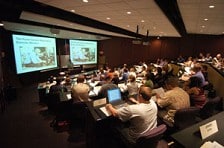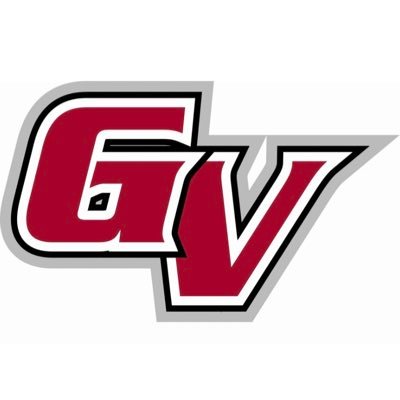University of Iowa looks to extend remote classes

The University of Iowa is putting added emphasis on leveraging its strengths outside the school’s Iowa City borders.
The university’s strategic plan for 2010 through 2016 lists public outreach as a goal. Included in that is expanding non-traditional paths for earning bachelor’s level and graduate degrees through online degree completion programs and through off-campus classes at places such as the John and Mary Pappajohn Education Center in Des Moines.
A new online program leading to a Bachelor of Business Administration (B.B.A.) degree, scheduled to start in the fall, fits squarely into that initiative, said Lon Moeller, associate dean of the Henry B. Tippie College of Business. The program – which already exists on campus in Iowa City – has a strong emphasis on developing students’ entrepreneurial management skills.
“The strategic plan challenges us to use technology to expand our program offerings,” Moeller said. “Obviously entrepreneurship is a real popular area for people. It’s one of our strengths. So, we thought, can we convert our Bachelor of Business Administration program to an online model? And yes, we can.”
The program is geared toward nontraditional students already working a full-time job who are looking for a change of career or find themselves doing management-related work.
The B.B.A. is a statewide program, but officials expect it to complement the existing university business programs in Des Moines, including the part-time Master of Business Administration (M.B.A.) curriculum and the recently launched executive M.B.A. program.
“I think it’s really important,” Moeller said of the college having a presence in Des Moines. “We’ve got some really good business partners in the Des Moines area, and we’ve had a lot of really good students who have left our undergraduate program to take jobs in Des Moines.”
The goal with all off-campus classes is to make sure the quality of education is the same as it is on campus, said Chet Rzonca, associate provost with the university’s division of continuing education. That means using the same faculty and curriculum, and having virtual interaction with professors and classmates.
“We’re trying to aim at what we are doing well, and where there’s a need,” Rzonca said. “We want to try to be flexible, but provide the same instruction and experience.”
For the B.B.A. program, that also means structuring the schedule similarly to how a class would be structured on campus. Typically, Moeller said, classes will have lectures that students will be required to review on their own time, whether it be PowerPoint slides or a video format, as well as a virtual classroom component at a set time every week.
David Hensley, a professor at the John and Mary Pappajohn Entrepreneurial Center, teaches courses in the existing online certificate in entrepreneurial management program, and will teach classes in the B.B.A. program. As a faculty member, he said, he finds it enjoyable to teach online. It creates a unique set of challenges to develop a relationship with students. The plus, he said, is that the type of working professional student that the program often caters to allows customization of coursework to help students apply it in their daily lives.
Though a number of off-campus programs exist, the university decided to include an initiative for off-campus programs after the Iowa Board of Regents included a goal in its 2010-2016 strategic plan. The regents set a goal of increasing credit courses available through distance education at each of the state’s public universities by 15 percent.
By the end of the calendar year, the University of Iowa will have partnerships with 14 of the 15 community colleges in the state, Rzonca said, including Des Moines Area Community College. The programs are designed to help students get an online bachelor’s degree in the existing online programs at the University of Iowa – the B.B.A. will join existing degree programs in applied studies and liberal studies – after completing an associate degree at a community college.
Rzonca said the university is developing a strategic plan for how to continue with the expansion of off-campus programs in the future, but talks at this point are preliminary. The conversation has brought out differing views among faculty and staff. Some people think the university should be aggressive in its efforts to attract more students and more tuition money, and others, Rzonca included, want to make sure the university strategically looks at which programs are the strongest to be offered off-campus.
For now, though, the B.B.A. program provides a good fit for Des Moines, said Moeller from the Tippie school.
“We’ve had several inquiries from people in Des Moines,” he said. “It’s perfect for us.”











